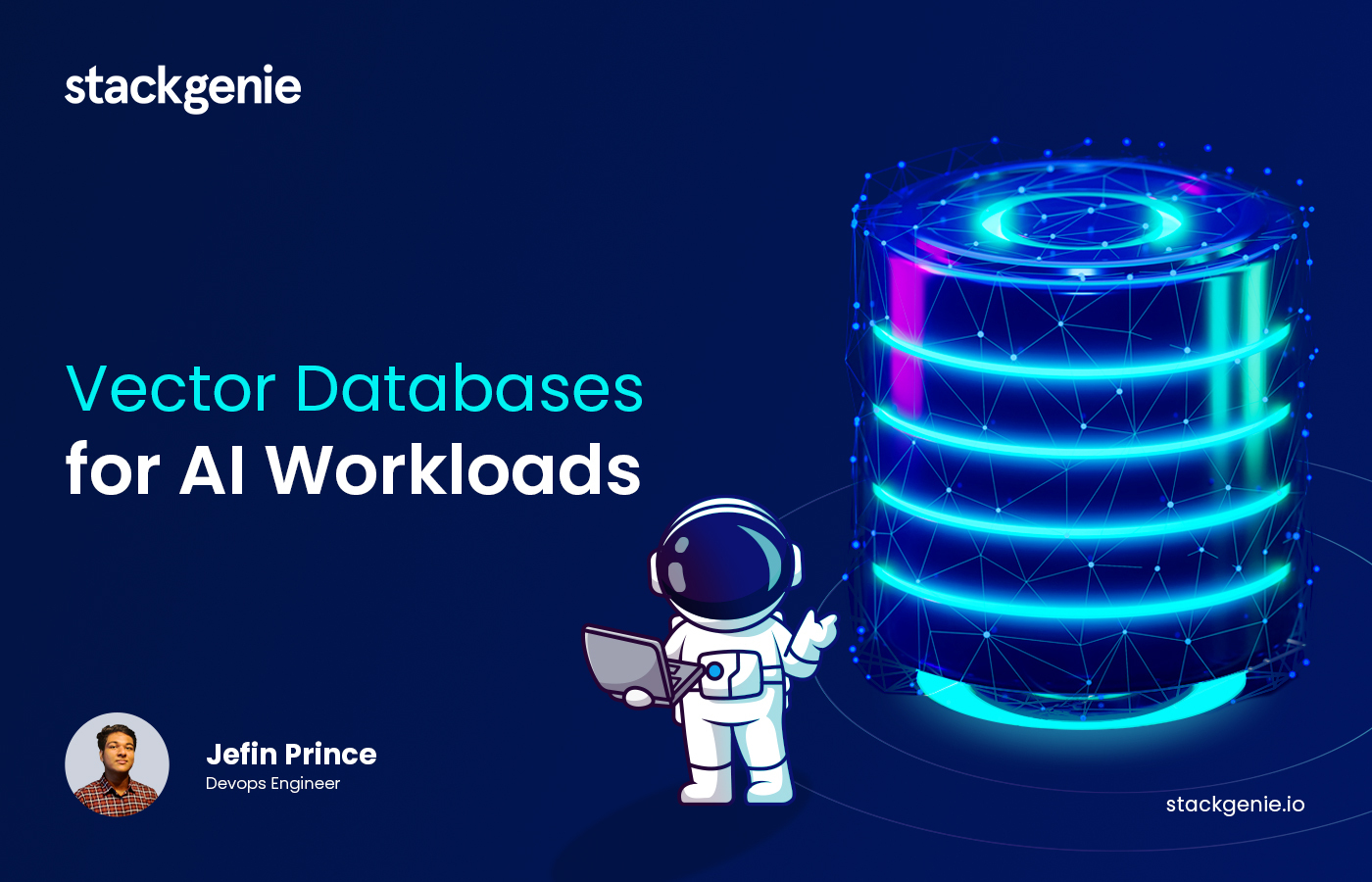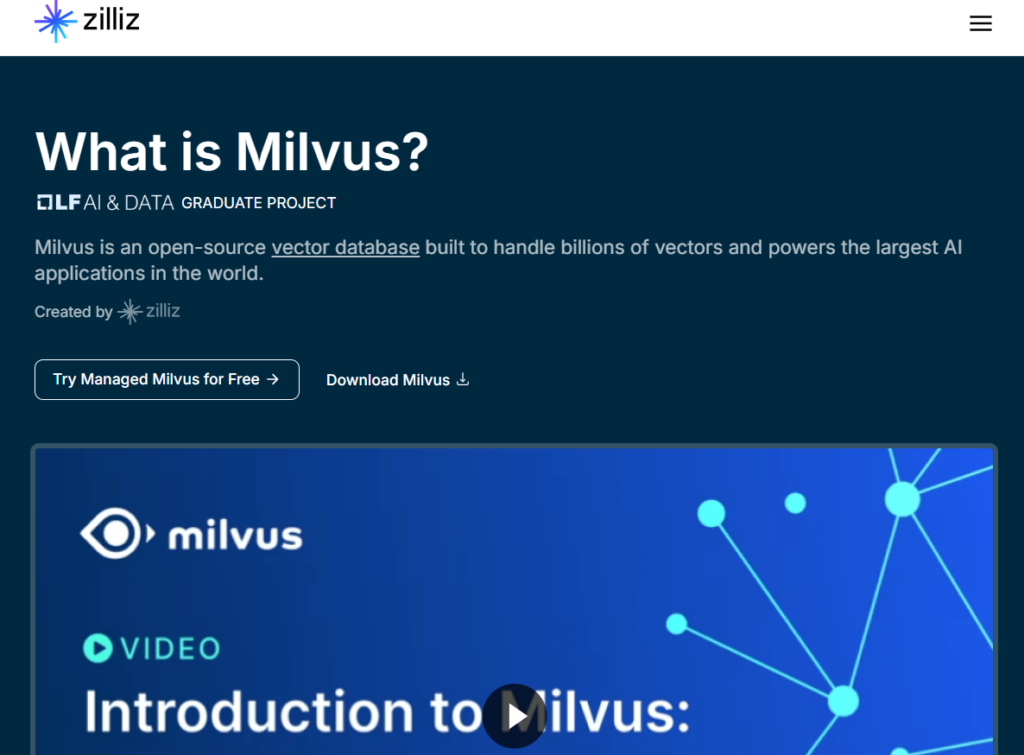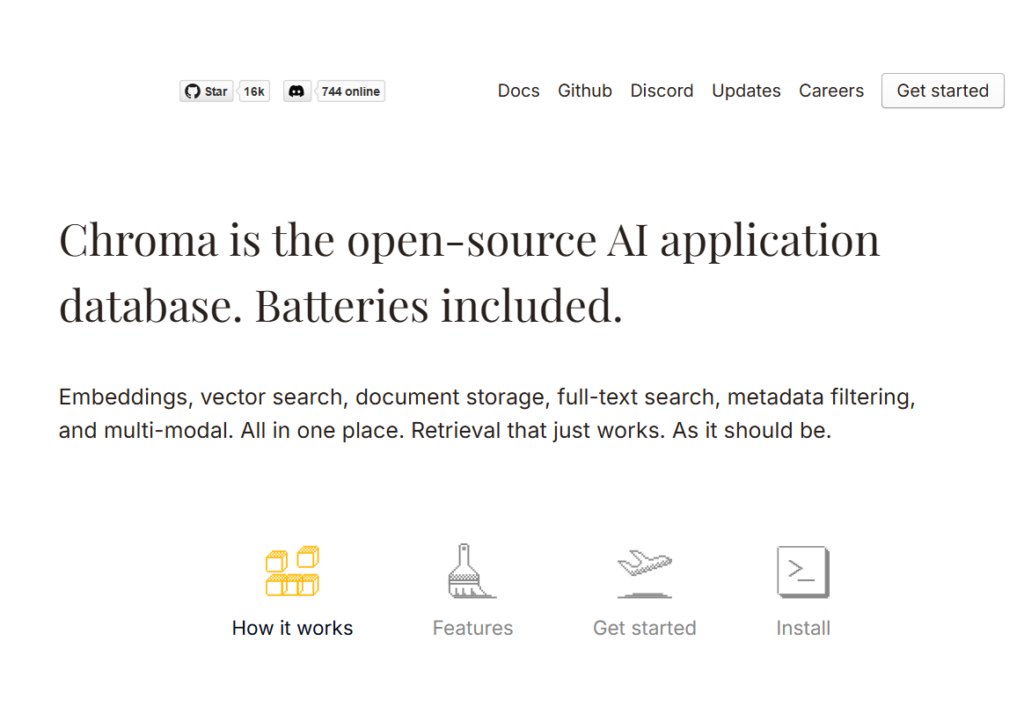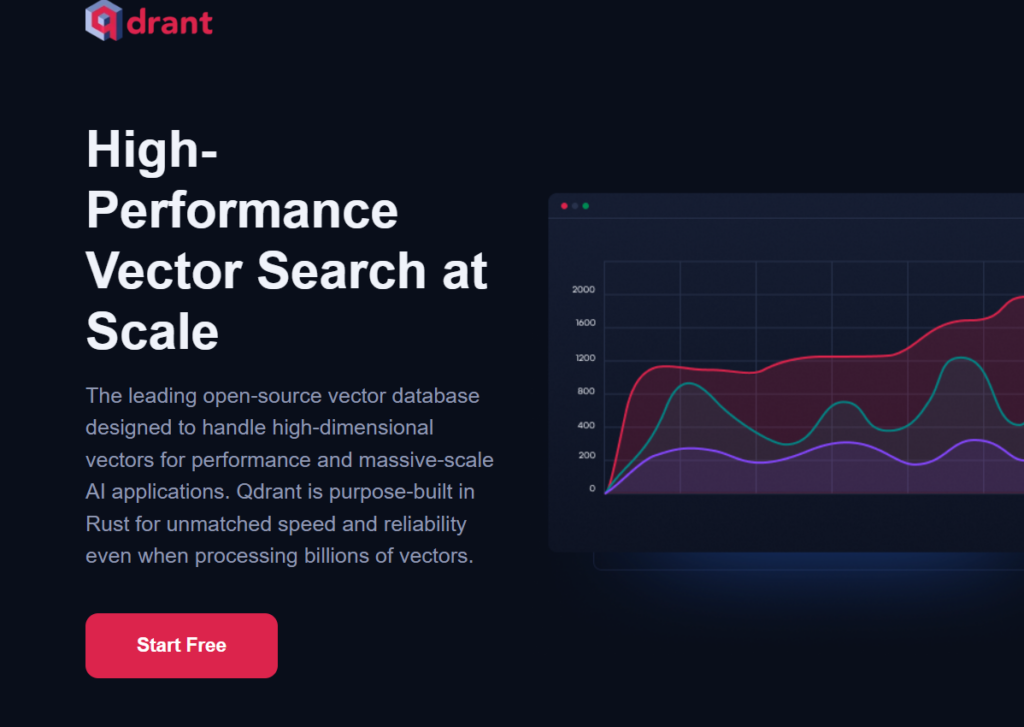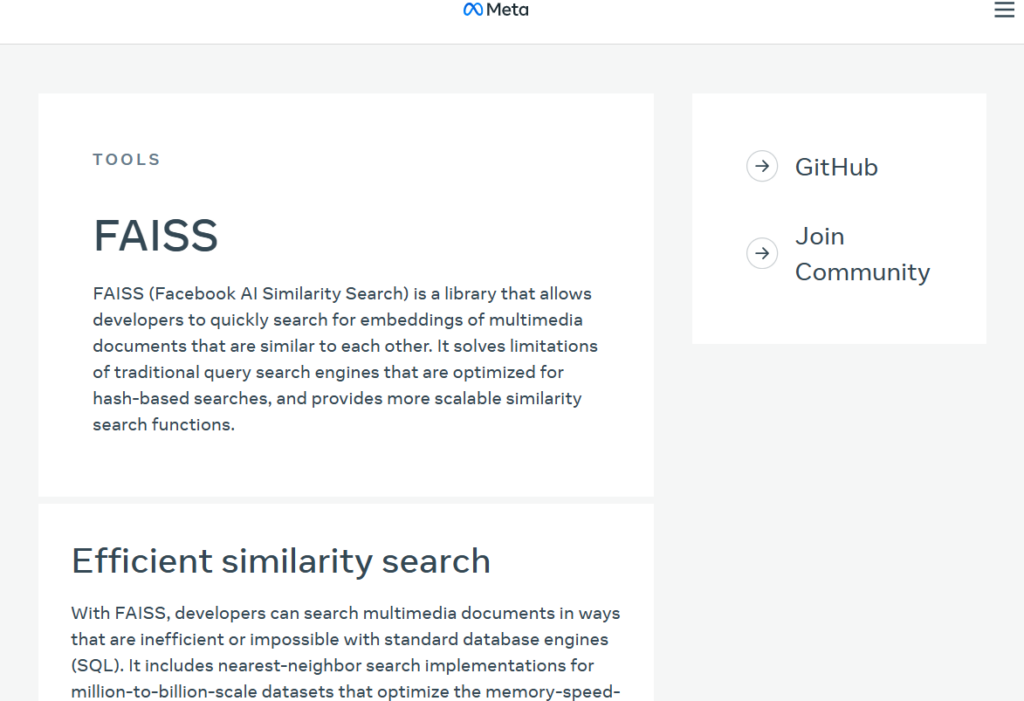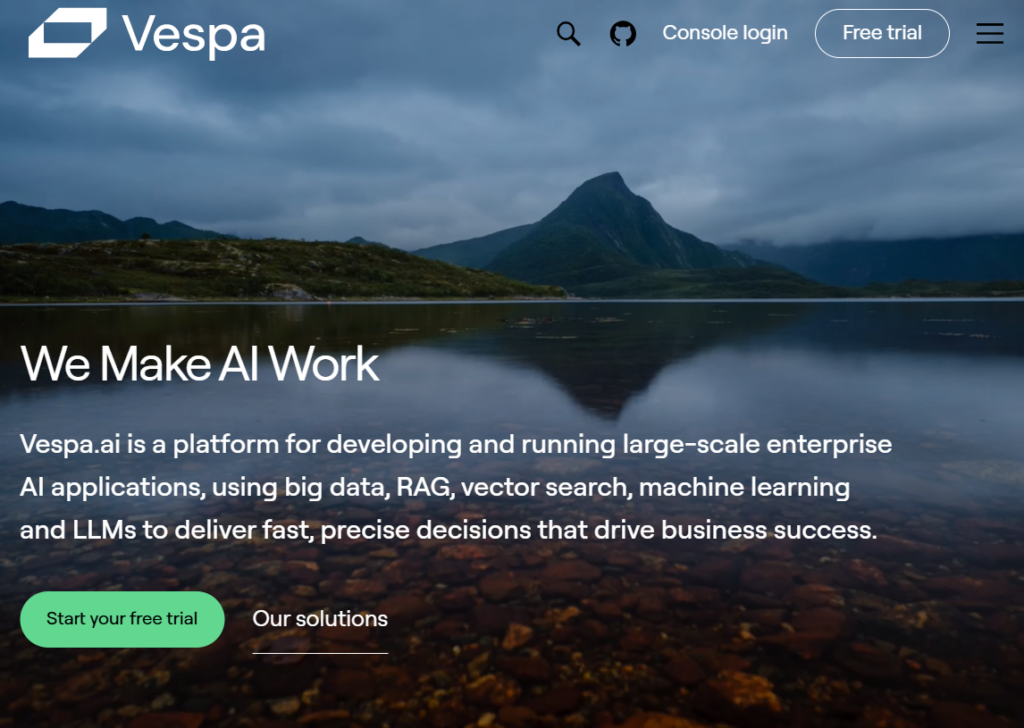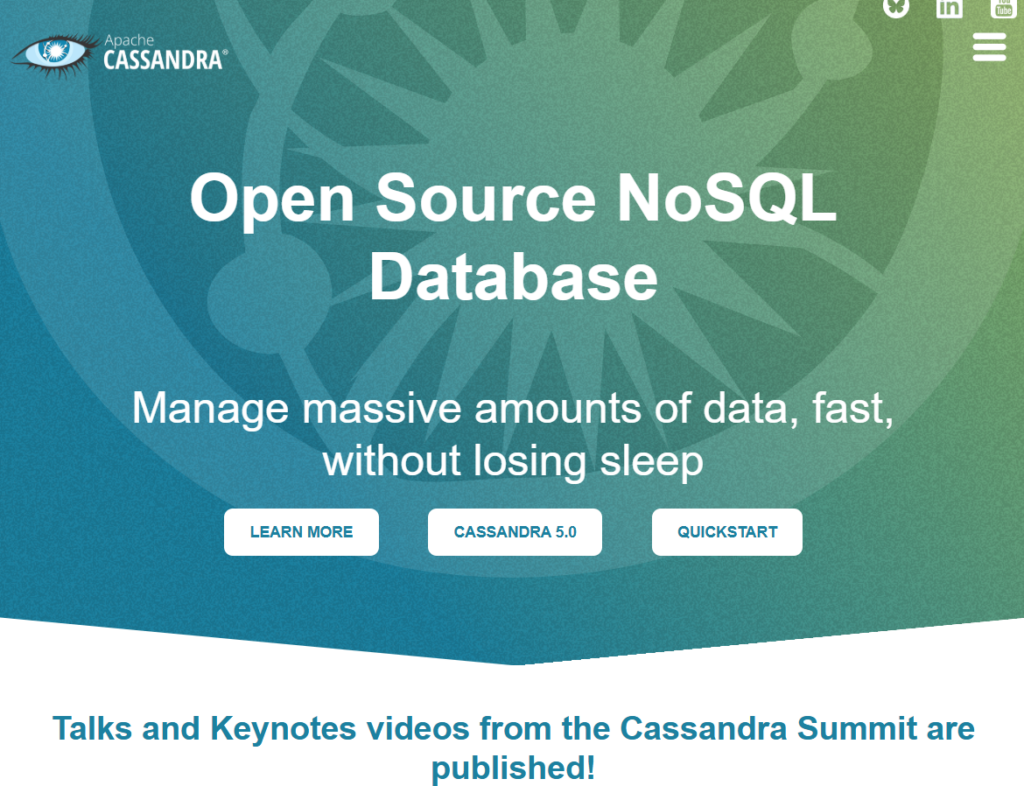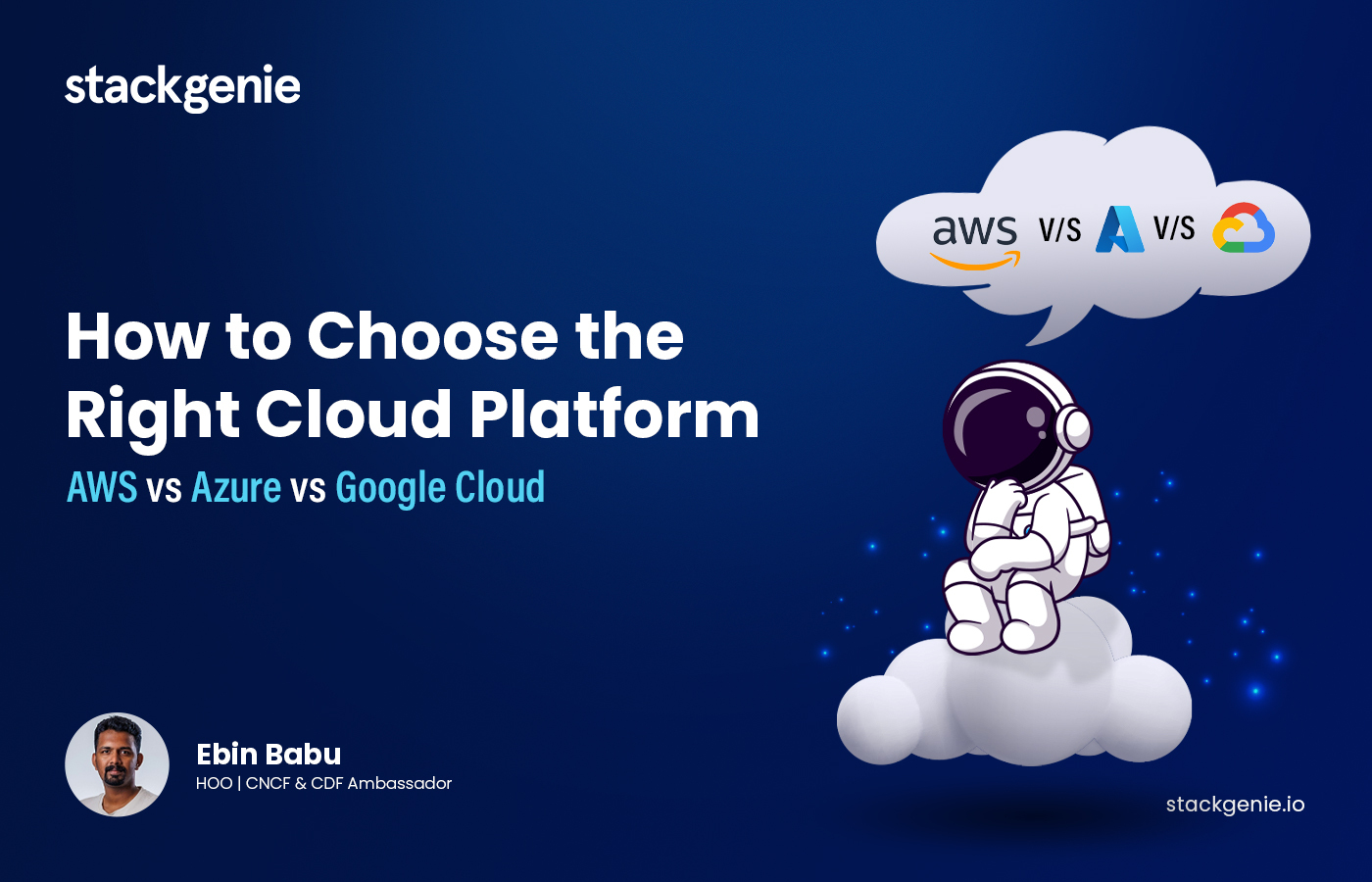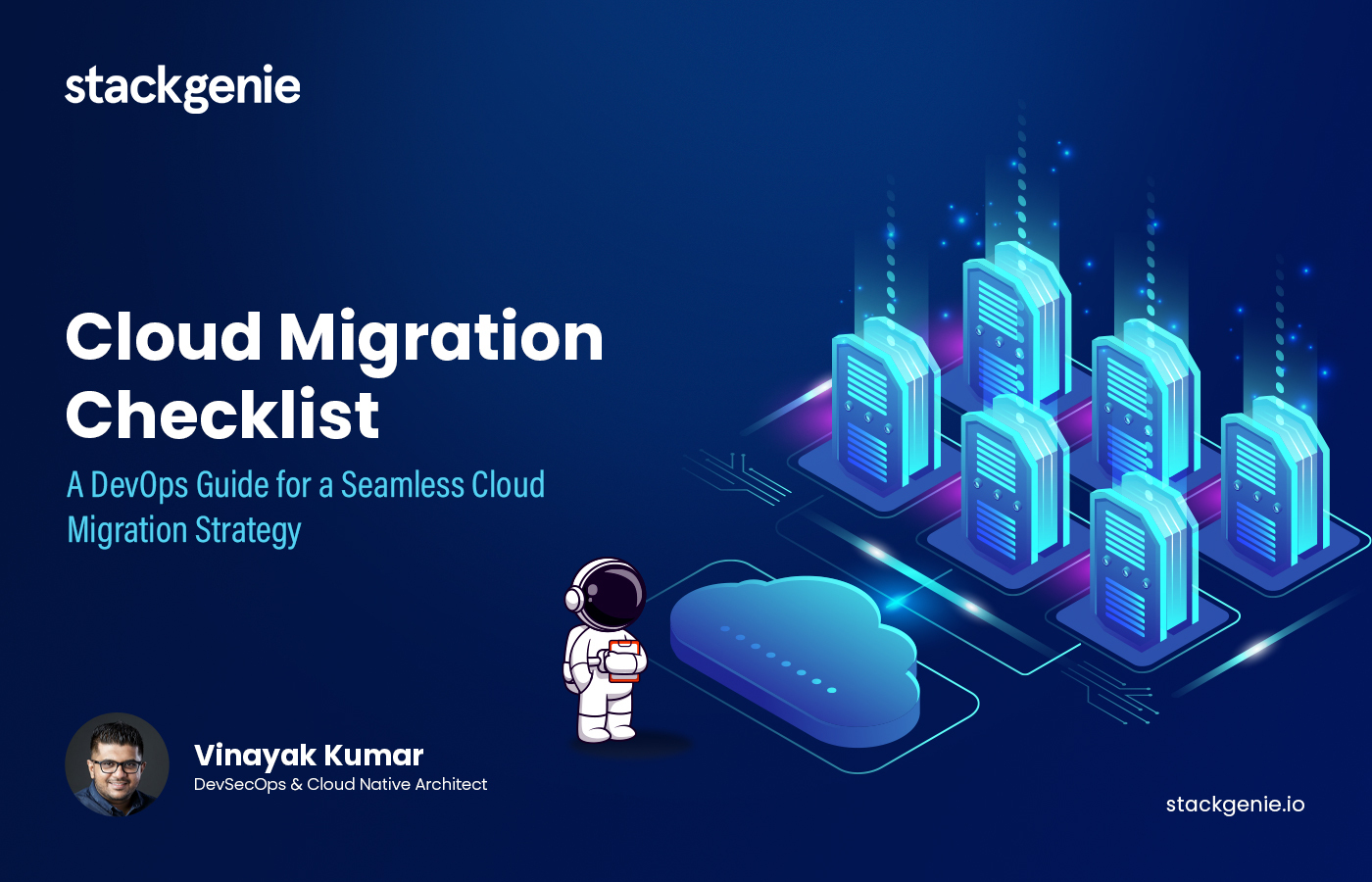The abundance of data in the form of images, text, and videos has made it difficult to manage and extract valuable information. However, vector databases have emerged as a cornerstone in addressing this challenge. They enable you to run similar searches and manage vector embeddings derived from unstructured data.
AI models generate embeddings (a high-dimensional representation of data), and vector databases excel in storing, querying, and comparing these embeddings. This capability makes them indispensable for powering recommendation engines, semantic searches, natural language processing, and personalization algorithms.
Vector databases serve as the core for businesses adopting AI solutions to scale and offer intelligent data management extensively. In this blog, we will discover the best vector databases to help you manage AI operations.
Understanding Vector Database: How Does it Work?
Vector databases store numerical expressions of data like text, images, and videos. Unlike traditional data, they excel in handling high-dimensional data by focusing on patterns and relationships instead of exact matches.
Here’s a simple analogy: Imagine you are at a bookstore looking for novels similar to your favorite preference. Now, a traditional database might match by title or author to find your preferred books. However, a vector database would find books with similar themes, writing styles, or genres—offering a deeper context level.
Applications of Vector Databases:
- Recommendation Systems: They suggest products or content aligned with user preferences.
- Semantic Search: Instead of just matching keywords, they understand the context.
- Visual Searches: Identify and compare images based on visual features rather than metadata.
11 Best Vector Databases for 2025
In 2025, the need for efficient data solutions will continue to grow across various industries. Here are the best vector databases known for their performance, scalability, and ability to handle complex workloads.
1. Pinecone
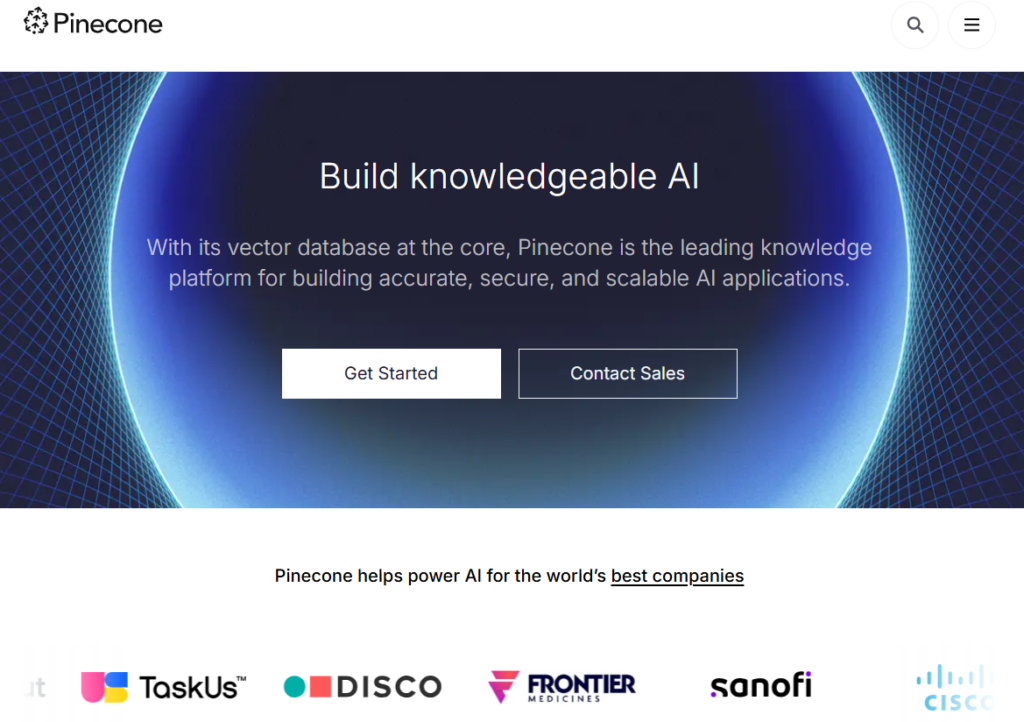
Pinecone is a fully managed cloud-native vector database that helps businesses build advanced AI solutions by ingesting and analyzing high-dimensional data. It eliminates the need to manage complex infrastructure, offering simple API and hassle-free scalability.
Key Features:
- Sparse-dense indexing
- Support for metadata filters
- Rank Tracking
- Duplication detection
- Low latency search
- Integration with LangChain
Pinecone powers AI applications for Microsoft, Notion, Hubspot, Shopify, and Accenture, thanks to its exemplary indexing and search capabilities. It also offers services such as AI assistant development, chatbot creation, and human-like interaction for relevant information sourcing.
Top use cases of Pinecone:
- E-commerce industries can personalize product recommendations for customers.
- Customer Support can build intelligent chatbots for faster query resolution.
- Healthcare business owners can improve diagnostic accuracy with advanced data retrieval in medical imaging.
Pinecone simplifies building AI-driven solutions, making data management scalable for businesses across industries.
2. Weaviate

Weaviate is an open-source vector database that allows users to transform complex data like images and text into a vectorized format for faster retrieval. It is designed to utilize the power of vector databases and store, search, and review high-dimensional data.
Key Features:
- Nearest neighbor search in milliseconds
- Modular integrations with OpenAI, Cohere, and HuggingFace
- Built-in AI functionalities for Q&A, summarization, and recommendations
- Distributed, cloud-native architecture with robust replication
- Complete CRUD capabilities for data management
Weaviate helps you scale your digital product prototypes and production environments, making it a trusted choice for enterprises aiming to leverage ML models effectively. It stands out as the best vector database for businesses, offering hybrid search capabilities that seamlessly combine vector-based and keyword-based search.
3. Milvus
Zillis Milvus is an open-source vector database that can handle massive vector datasets. Optimized for high-speed similarity searches, it supports AI-driven applications such as storing and querying massive embedding vectors generated by deep neural networks.
Key Features:
- Trillion-scale vector search in milliseconds
- Extensive indexing options for precise query results
- Seamless integration with frameworks like TensorFlow, PyTorch, and HuggingFace
- Scalable and adaptable across Kubernetes, Docker, and cloud environments
Top Clients: Airbnb, PayPal, Shopee
Milvus streamlines unstructured data search and ensures a consistent experience across various deployment environments. Its distributed architecture and low-latency search capabilities make it an excellent choice for businesses handling large-scale vector data.
4. Elasticsearch
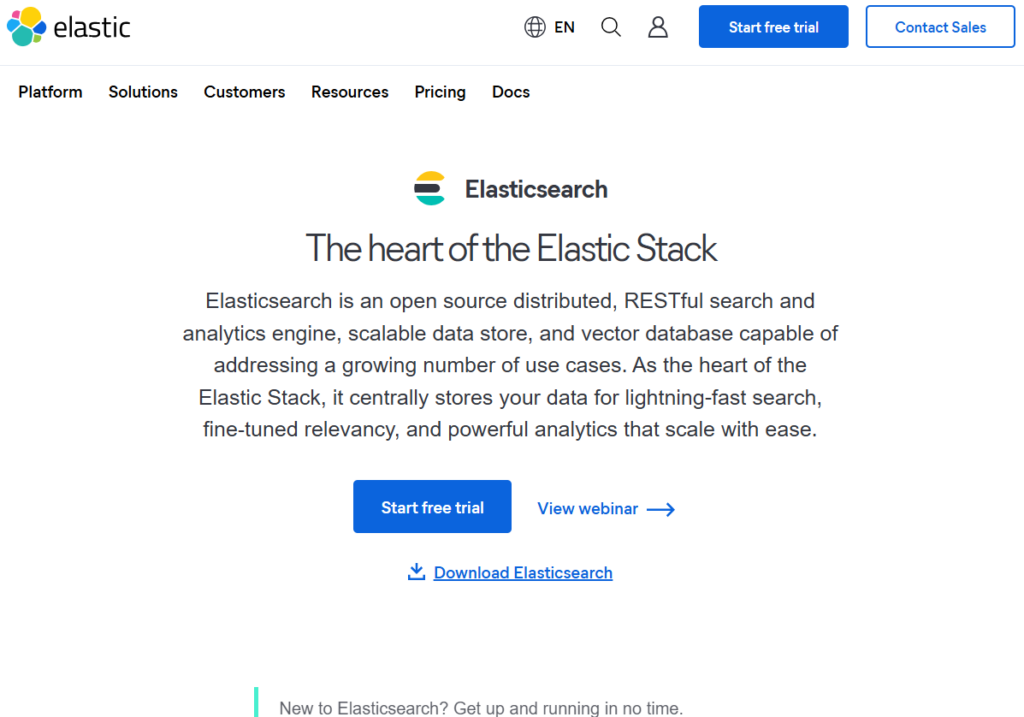 Elasticsearch is an open-source analytics engine built on RESTful infrastructure with a vector similarity plugin. It offers a proven, enterprise-grade platform that can handle structured, unstructured, and numerical data.
Elasticsearch is an open-source analytics engine built on RESTful infrastructure with a vector similarity plugin. It offers a proven, enterprise-grade platform that can handle structured, unstructured, and numerical data.
Key Features:
- Empowers horizontal scaling, allowing businesses to expand their infrastructure as data volume increases
- Consistent performance and reliability, even across multiple data centers
- Ensure uninterrupted service with Elasticsearch’s fault-tolerant design
- Consolidate and index vast datasets for instant, context-aware searches
Renowned organizations like Land Rover, Cisco, and Booking.com leverage Elasticsearch to drive innovation and scalability in their operations. It is the best vector database for businesses, offering clustering, high availability, and automatic recovery while working on distributed business architecture.
5. Chroma
Chroma is the most suitable vector database for RAG (Retrieval-Augmented Generation), simplifying enterprise-level LLM development. It is designed for next-generation applications that support AI and machine learning use cases.
Key Features:
- Handles billions of data points without compromising performance
- Context-aware and highly relevant results
- Built to power AI-native apps like chatbots and image recognition
- Reduce engineering overhead with developer-friendly APIs
Unlike general-purpose vector databases (e.g., Weaviate, Pinecone), Chroma is specifically designed to support AI-native workflows. For example, out-of-the-box vector embedding storage and querying are optimized for complex LLMs.
Its direct integration with popular AI frameworks reduces development cycles and time to market. Thus, for businesses looking for AI-native features, semantic accuracy, and developer accessibility, Chroma can be the best vector database.
6. Qdrant
Qdrant is a high-performance vector database built to simplify the deployment of AI-driven applications that rely on similarity search. It is designed for speed, precision, and scalability, making it ideal for unstructured data management.
Key Features:
- Compatible with platforms like PyTorch and TensorFlow
- Uses a custom HNSW algorithm for spontaneous accurate searches
- Supports string matching, numerical ranges, geo-locations, etc
- Supports both on-premises and cloud environments
Qdrant empowers industries like e-commerce, customer support, and content management to build recommendation engines, intelligent search systems, and real-time personalization. Its ability to handle complex data structures with minimal latency ensures businesses achieve fast, relevant results at scale.
7. Pgvector
Pgvector is an extension for PostgreSQL that brings vector search capabilities to one of the most trusted relational databases. It combines the power of PostgreSQL’s structured data management with vector embeddings.
This enables businesses to leverage advanced AI and machine learning applications without additional infrastructure.
Key Features:
- Vector similarity search embedded within PostgreSQL
- Full support for indexing and querying high-dimensional vectors
- Seamless integration with PostgreSQL’s relational capabilities
- Extensible design for AI tools like OpenAI and HuggingFace
- Scalable performance across structured and vector data
Pgvector is the preferred choice for businesses looking to unify traditional data management with modern AI capabilities. Organizations can use minimal effort to leverage their existing PostgreSQL setup while incorporating personalized recommendations and AI-powered insights.
8. Faiss
Faiss is an open-source library designed specifically for efficient similarity search and clustering of dense vectors. Developed by Facebook, it supports various search functionalities, batch processing, and searching within vector sets, even those exceeding RAM capacity.
Key Features:
- High-performance indexing and retrieval for dense vectors
- Primarily coded in C++ but fully supports Python/NumPy integration.
- Customizable distance metrics to optimize search relevance
- Supports GPU acceleration to handle large-scale datasets
Faiss offers a GPU-optimized architecture that allows businesses to process billions of vectors in real-time.
9. Deep Lake
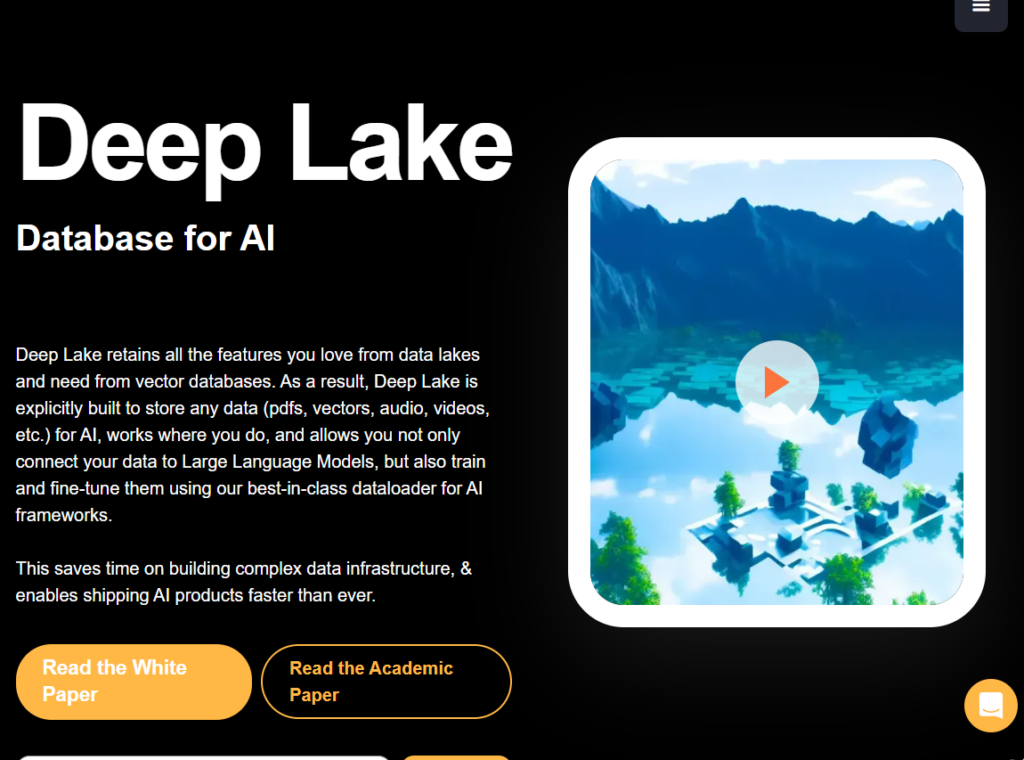
Deep Lake is a high-performance, AI-native database focusing on unstructured data for machine learning workflows. It supports efficient storage, querying, and versioning of datasets. It is a purpose-built, high-performance database designed to significantly reduce the time it takes to train and deploy machine learning models.
Key Features:
- Can track changes with built-in support for dataset versioning
- Integrates with tools like LangChain, LlamaIndex, and Weights & Biases
- High-speed data retrieval for large-scale AI models
- Distributed and cloud-native architecture for scalability
Top use cases of Deep Lake:
- Manage large-scale video datasets for training object detection and navigation algorithms.
- Organize and search vast video and audio content libraries for improved content discovery.
Deep Lake accelerates machine learning workflows by simplifying unstructured data management and enabling faster model training and deployment.
10. Vespa
Vespa is an open-source platform tailored for real-time serving, searching, and recommendation of data and machine-learned models. It is designed for businesses that require high-performance applications combining structured and unstructured data.
Key Features:
- Effective support for varied query operators
- Acknowledged continuous writes in milliseconds
- Handling large datasets using a scalable architecture
- In-built support for deploying and serving ML models
Vespa is the platform of choice for businesses relying on GenAI app development, semi-structured navigation, and personal search capabilities. Its top clients include Spotify, Yahoo, and Qwant.
11. Apache Cassandra
Apache Cassandra is an open-source, highly scalable distributed database designed to manage varied sizes of high-velocity data with no single point of failure. It is known for its exceptional performance and is a popular choice for mission-critical systems.
Key Features:
- Masterless architecture for high availability and fault tolerance
- Linear scalability to handle growing workloads effortlessly
- Support for time-series data and real-time analytics
- Flexible data model with CQL (Cassandra Query Language)
- Seamless replication across multiple data centers or cloud regions
Cassandra powers applications requiring constant uptime. Its distributed nature ensures robust performance and reliability, even during peak loads. Cassandra can be the best vector database for organizations managing time-stamped data, perfect for IoT, logs, and monitoring systems.
Choosing the Best Vector Database for Data Accuracy
Vector databases have transformed how businesses manage and derive value from unstructured data. The right vector database can help your organization achieve top-notch scalability, efficient data retrieval, and optimal integration with existing AI frameworks.
When selecting the best vector database for your needs, consider key factors like scalability, integration capabilities, and security features. A thoughtful approach ensures that your chosen solution aligns with your AI goals and operational requirements.
Ready to supercharge your AI development and data management strategies? Let Stackgenie guide you in implementing the best vector database solutions tailored to your business needs. Explore the best possibilities with our expert consultants. Contact us today!
FAQs
1. Are vector databases suitable for small-scale projects?
Yes, vector databases are highly scalable and adaptable. For small-scale projects, they efficiently handle smaller datasets while allowing room for future expansion. Many vector databases offer flexible deployment options.
2. Can vector databases handle real-time data processing?
Yes! Many vector databases are designed to manage real-time data processing. Features like low-latency queries and high-speed indexing make them suitable for real-time scenarios.
3. How secure are vector databases?
Vector databases prioritize security with features like data encryption, access control, and compliance with industry standards. Depending on the platform, you can expect additional capabilities, such as role-based permissions and audit logs, to ensure data integrity and protection.
